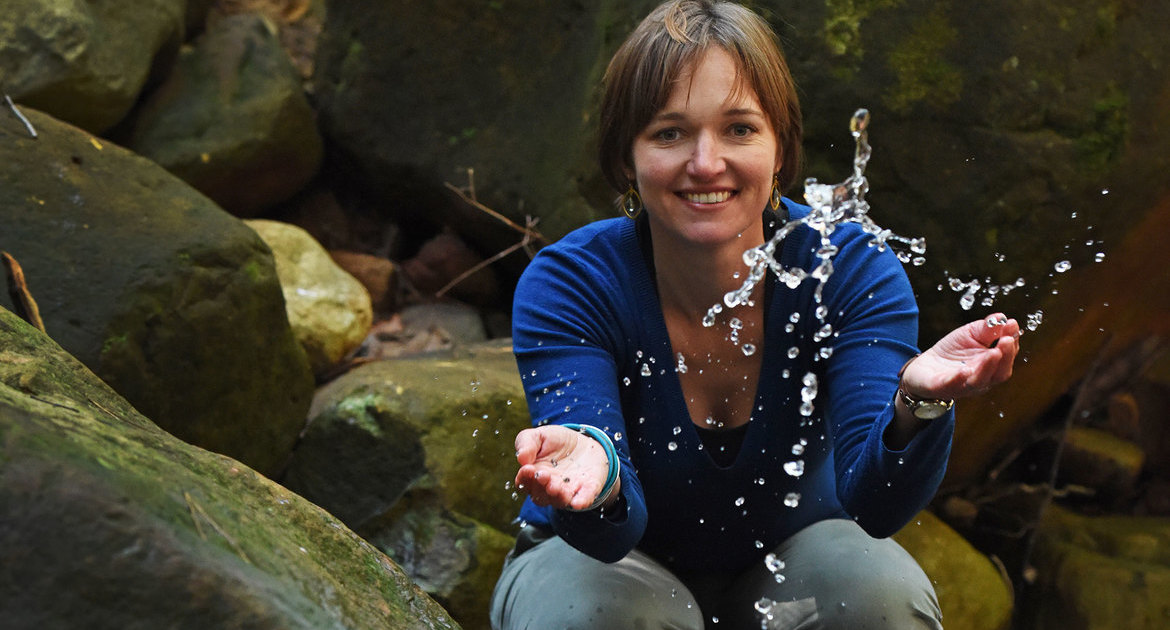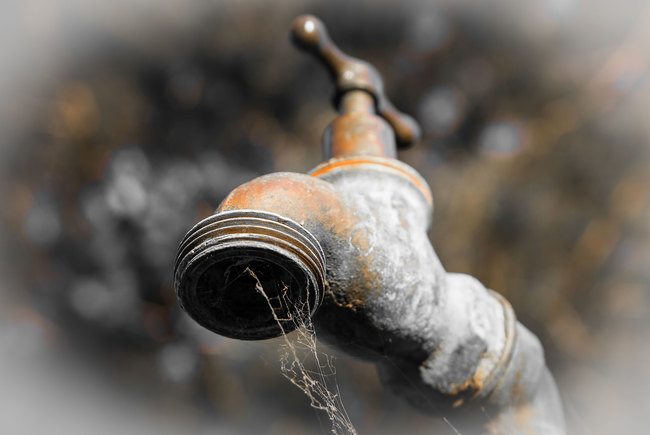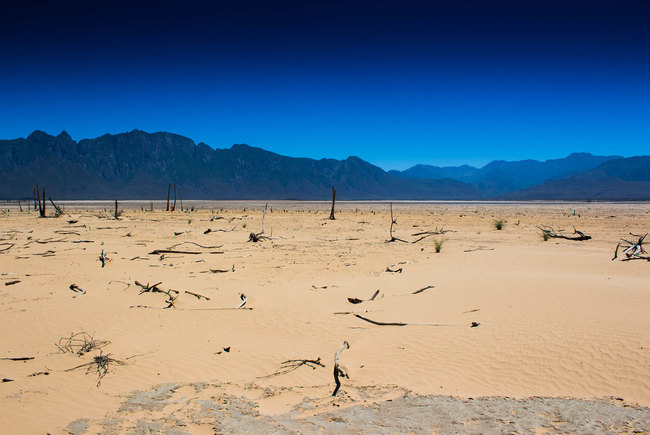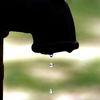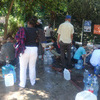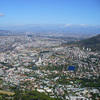UCT preparing for a water-sensitive campus
23 October 2017 | Story Kevin Winter. Photo Michael Hammond.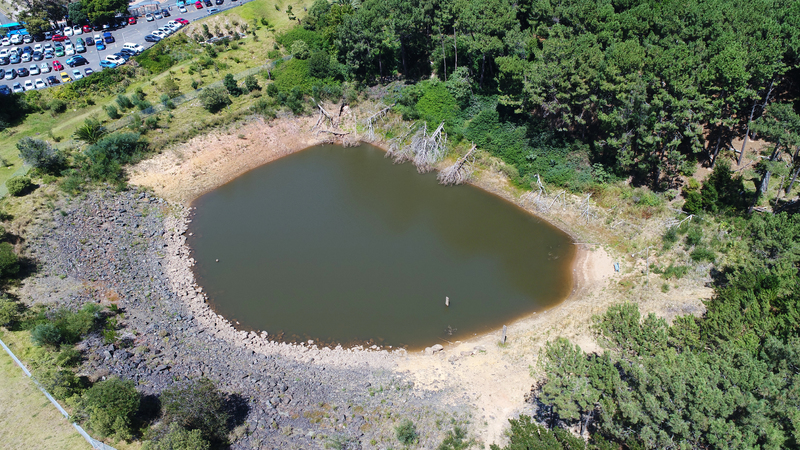
UCT is recognised as a leading institution in South Africa for its research and development in water-sensitive urban design. The current drought is an opportunity for the university to use this expertise to showcase what it means to be a water-sensitive campus.
In an article published by UCT News titled “UCT underprepared for drought”, it was noted that measures to reduce water demand were limited partly because the water reticulation plan was incomplete and some water meters could not be identified.
UCT is not alone in this predicament and many other universities around the world report a similar challenge.
The article indicated that stored water capacity was low and that alternate water sources, such as storm water, were poorly integrated into the total water system on the various campuses.
The article also raised concerns about the City of Cape Town’s plans to reduce the hydraulic pressure of municipal water supply and the consequences for buildings that were not equipped with booster pumps or rooftop water-storage tanks.
Recently the City began Phase 1 of its Disaster Risk Plan. This involves a water rationing programme that is already affecting parts of Cape Town. As yet there is no indication that the programme will affect UCT campuses.
The plan is an attempt to avoid ‘day zero’, which is now widely predicted to occur in March next year should there be no significant rainfall in the catchments feeding the main dams or if the City’s planned intervention projects, such as groundwater abstraction, treated effluent and desalination, are unable to supplement the existing water supply.
The cost of complacency
The water crisis is very serious not only because of the threat of running out of water, but because planned interventions are likely to be very costly, perhaps even unaffordable.
The most common explanation for these woes is that the Western Cape has experienced well below average rainfall resulting in the severe depletion of the main dams supplying the city.
In reality, the City and its citizens were too comfortable in relying on surface water supply and fully expected that the dry spell would be reversed within a year or two. Unfortunately this is the third year of well below average rainfall and there is no certainty about the state of rainfall in 2018.
Residents in the Western Cape need to be much better prepared to deal with the long-term consequences of being a warmer, drier region. New ways need to be found to reduce the cost of water by reducing municipal water demand through the reuse of water and in using a range of alternative water supplies.
There are no quick fixes to the immediate water crisis. In the unlikely event that the city runs out of water, UCT will face similar consequences. However, the longer term prospects for building a water-sensitive campus are much more exciting.
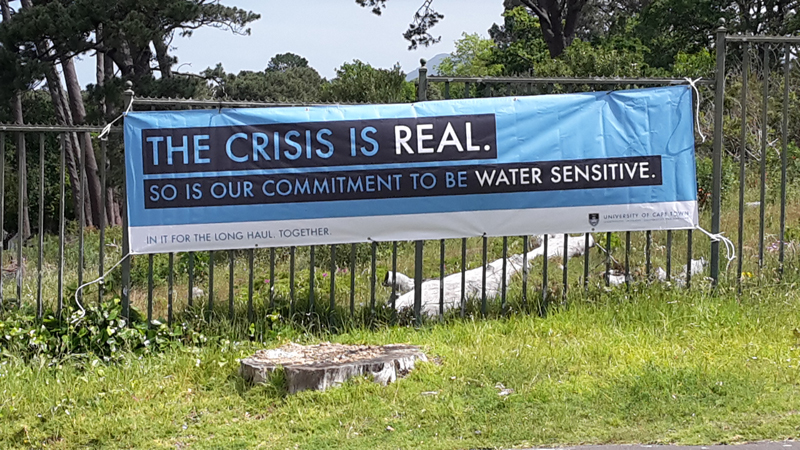
UCT’s Water Task Team is making progress, albeit slow – there are significant challenges that are limiting the team’s work.
The lack of water data is a major obstacle. It is difficult to mount an effective water conservation programme with limited data to determine the benefit of planned interventions and behavioural responses.
The problem is long-standing and was reported in the Green Campus Initiative Report in 2011.
Interventions and improvements
Nevertheless, the task team has made a start and what follows is a brief list of activities thus far:
- The water-storage capacity of the earth dam on the main campus has been improved by removing the vegetation that was obstructing the flow of storm water into the dam. A long-standing leak was repaired by replacing valves in the off-take pipeline from the dam.
- A long-neglected borehole on the main campus has been repaired and a second borehole tested to determine its operation and yield. These water sources could be used for irrigating critical areas on the campus or used as an emergency water supply should the need arise, but not for drinking purposes.
- Properties and Services is collating UCT’s water reticulation system on a single geographic information system (GIS) map. The task team is working with the City to identify and verify water meters across the campuses. Some meters will be converted to a digital metering system for real-time water monitoring, thus enabling much better control over water consumption.
- Students in resident housing are being made aware of the water crisis through various communications, including posters and regular updates. In addition, the residences have reduced water demand by doing things differently: using cleaning sprays rather than buckets of water; changing catering, cooking and washing practices to reduce water use; and using grey water for cleaning.
- Education and awareness on the campuses is being communicated through social media, UCT News, student newspapers, pamphlets and banners. These campaigns will be rolled out to all campuses over the coming months.
- Contingency plans for managing the water risk are being developed by Properties and Services and with the support of the Water Task Team. These plans will deal with various scenarios, including the need for water in the event of a fire, for unblocking sewerage pipes, and for sanitation and drinking in the absence of potable water.
Long-term plans
These are early days, but the aim is to align UCT with new thinking and practices that are guided by water-sensitive principles.
The long-term plan is to ensure that UCT is capable of being a leading example of sustainable water management and is better prepared to respond to climate change.
If you wish to share ideas, stories or offer challenges that could help to build a water-sensitive campus, kindly contact the Water Task Team.
 This work is licensed under a Creative Commons Attribution-NoDerivatives 4.0 International License.
This work is licensed under a Creative Commons Attribution-NoDerivatives 4.0 International License.
Please view the republishing articles page for more information.
Cape Town water crisis
At UCT our researchers have been analysing the causes of the current drought, monitoring water usage on campus and in the city, and looking for ways to save water while there is still time. As part of UCT’s water-saving campaign, all members of the campus community are encouraged to reduce their water use by half, which will help Cape Town to meet its water-use goals and ensure a water-sustainable university in the future.












